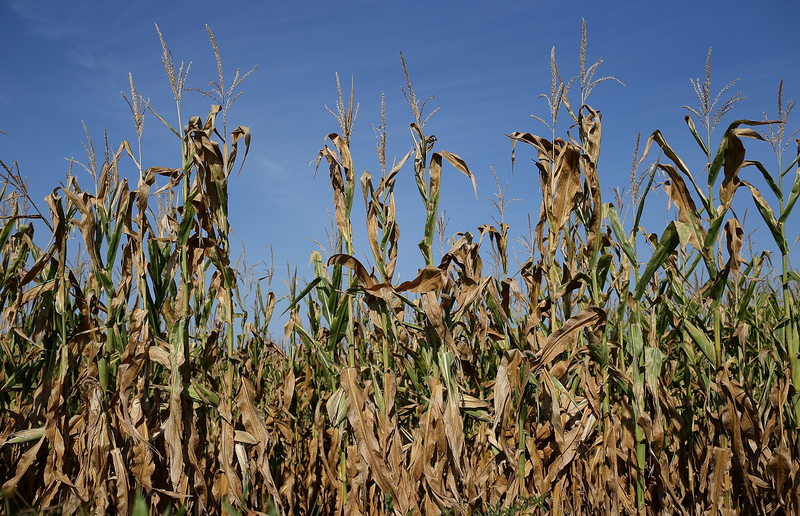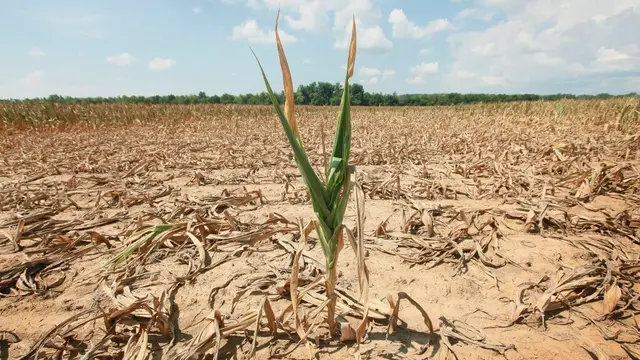Editor's Note:
The writer, Mr. I. Hussain Janjua is a senior media professional and analyst having experience of research & broadcast journalism in different organisations. He is a non-resident fellow of Chengdu Institute of World Affairs (CIWA). (Email: [email protected]; twitter: @ihussainjanjua)
Roughly a billion people across the world experience the effects of food insecurity today which is linked to poverty while shifts in the global economy, including rises in global food and oil prices, affect food security throughout the world, especially the low-income countries with more severity.
There are a number of factors that can affect a person's economic access to food, including lack of job opportunities that can provide sufficient income, or lack of training or business knowledge for success with income generating activities.
Moreover, the novel coronavirus that has overwhelmed public health systems and jolted economies around the world now is poised to spark a global hunger crisis as well --- threatens to push millions of people from food security into food insecurity—and towards outright starvation.
In the last 30 years, rates of extreme poverty fell by more than half, from around two billion in 1990 to about 700 million people in 2015, thanks to private-sector-fueled growth and stronger social safety nets, among other factors.
But in the last four years, the number of people facing chronic hunger has risen, from 796 million to 821 million and acute hunger has grown nearly 70 percent in the past four years, from 80 million people to 135 million. Nearly a billion people suffer from either chronic or acute hunger today as the pandemic has further accelerated the reversal process.
 The Covid-19 pandemic has compounded the existing crises; credible estimates suggest that the number of people suffering from acute hunger could nearly double by the end of the year to 265 million while additional 300 million people will become nutrient deficient.
The Covid-19 pandemic has compounded the existing crises; credible estimates suggest that the number of people suffering from acute hunger could nearly double by the end of the year to 265 million while additional 300 million people will become nutrient deficient.
The low-income countries are more likely to suffer the most while the countries that boasted dynamic and growing economies prior to the outbreak have also begun to feel the heat. Among the hardest hit are countries that rely on exports of raw materials, such as Nigeria, South Sudan, and Zambia; those that depend on tourism, such as Gambia and Jordan; and those, such as Haiti and Nepal, where remittances sent home by migrants make up a significant percentage of their GDP.
The International Monetary Fund projects global growth in 2020 to fall by 2.8 percent, compared with 0.1 percent during the 2009 financial crisis. Such sizeable contractions in the global economy will be damaging for poor people around the world. The United Nations University World Institute for Development Economics Research suggests that a five percent GDP drop would place a further 85 million people in extreme poverty, inevitably leading to more food insecurity and hunger.
In the short term, in ten countries, including Syria, Yemen, and the Democratic Republic of the Congo, more than a million people per country are already on the verge of starvation. In the long term, the pandemic could lead to famine in as many as 35 countries, including Afghanistan, the Central African Republic, and Haiti.
Food security is an issue that also affects the number one economy of the world, the United States. According to recent data from the United States Department of Agriculture (USDA), approximately 14.7 percent of US households experience low or very low food security.
On the other hand, the UN food programme has warned that the year 2021 could be disastrous as 12 countries could face famine like situation while it has also indicated that global food commodity prices rose sharply to their highest level in almost 6 years partly due to adverse weather conditions as well, putting extra pressure in particular on 45 countries that need outside help for feeding their populations.
The conflicts and the corona pandemic has doubled the human needs and the increase in prices is an extra burden for those whose income fell as a result of coronavirus pandemic, which, according to the FAO said is proving to be an important driver of the levels of global insecurity.
International lending institutions need to work with developing countries to strengthen health, education, and other social safety nets during and after this crisis. In these developing countries, millions of hard-working small-business operators—hoteliers, shopkeepers, tour guides, and taxi drivers—have completely lost livelihoods and their ability to support their families.
Though the possibility of a steep rise in hunger as a result of the COVID-19 pandemic is sobering, even frightening but we need to remain optimistic and International institutions and their member states must act decisively to prevent that outcome.
(ASIA PACIFIC DAILY)
 简体中文
简体中文

